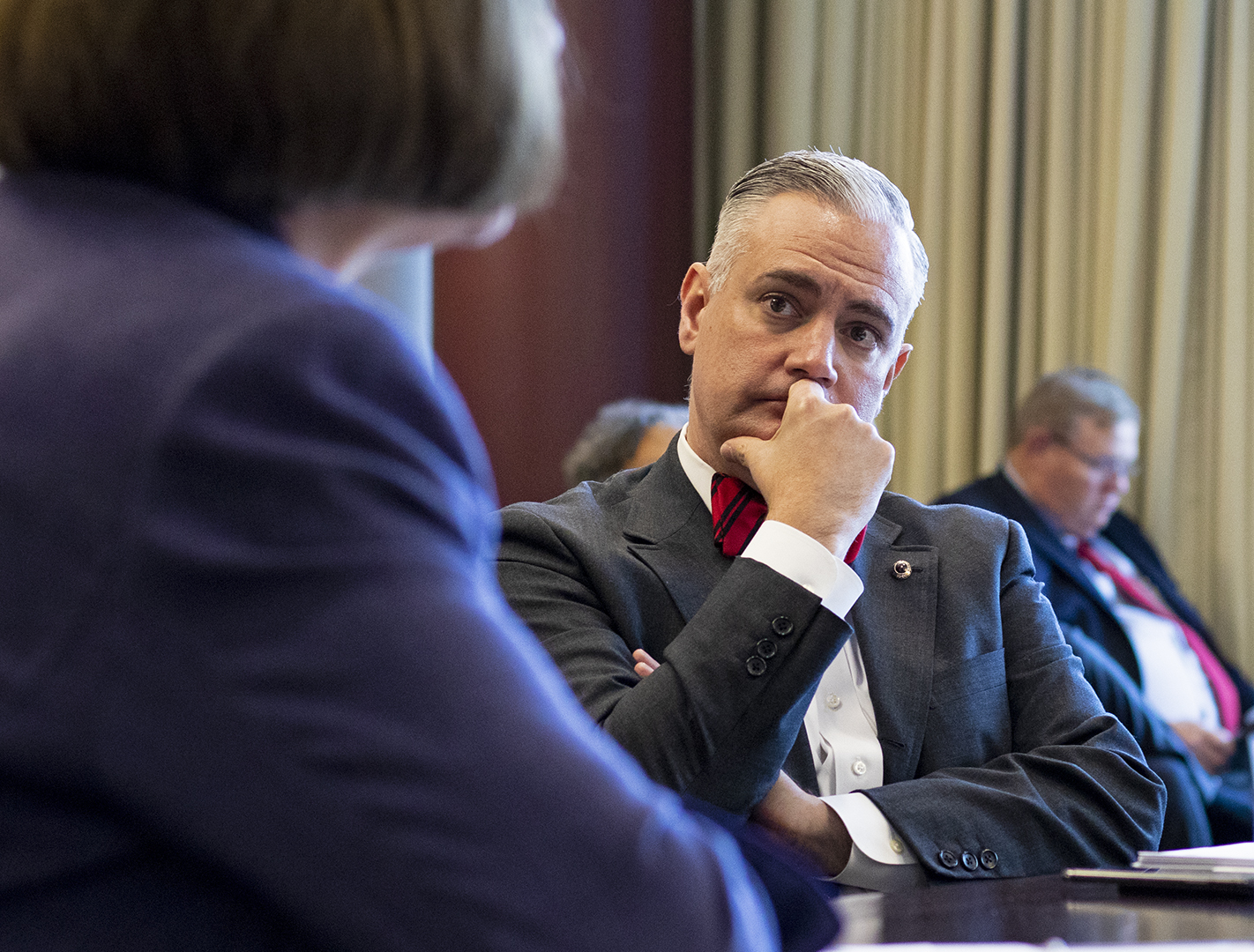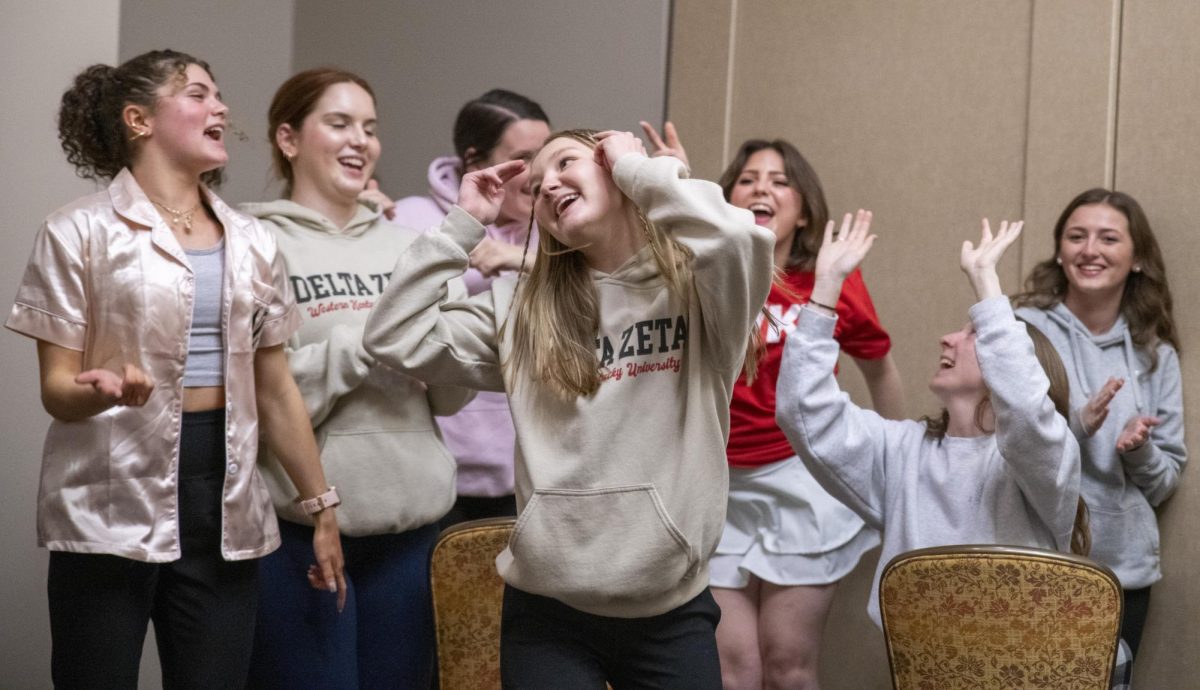Board of Regents approves 2 percent tuition increase
March 1, 2019
The WKU Board of Regents has increased in-state, undergraduate tuition by 2 percent and used about $3 million in carry forward funds to balance the budget during its meeting Friday.
In 2019-20, the in-state undergraduate tuition rate increased by 2 percent, from $5,301 to $5,401. This was the maximum percent increase that WKU could make to meet adopted guidelines by the Kentucky Council on Postsecondary Education.
Under the guidelines, WKU and other Kentucky public universities needed to increase in-state undergraduate tuition by no more than 6 percent over two years. WKU raised its undergraduate in-state tuition rate by 4 percent in 2018-19.
Out-of-state undergraduate tuition will remain at $13,248 and international undergraduate tuition at $13,572. The out-of-state and international undergraduate tuition rates would remain at their 2018-19 amounts to allow “WKU to become more competitive in these markets,” according to Board of Regents finance committee information.
Tuition for out-of-state graduate students will increase domestically per credit hour from $899 to $917 and decrease internationally per credit hour from $962 to $953.
WKU On Demand rates per credit hour will also increase for undergraduates, from $442 to $450, and graduates, from $607 to $707.
In a 10-1 vote, the board approved the increased tuition rates, with student regent Stephen Mayer being the only opposing vote.
“I’m going to vote no to any increased costs for students, but I realize the university is doing all it can for the future to steer clear from additional costs to students,” Mayer said. “I do commend Caboni for looking at things such as retention and increasing the budget model, which in the future will help alleviate that cost once we get out of our deficit.”
President Timothy Caboni responded to Mayer’s comments, emphasizing how people should look at WKU’s “net price,” the collective amount it costs for a student’s tuition, books, housing and fees. He said people should not only focus on the “sticker price” of increased tuition.
Caboni said the net price of WKU is less expensive than the University of Kentucky, University of Louisville, Eastern Kentucky University and Morehead State University.
“We work really hard to keep that number down,” Caboni said. “We are committed to making sure that every young person who wants a WKU experience can have it, regardless of their family’s economic condition. So I understand the tuition increase is always difficult, but I want to put it in context with the work that we’re doing to keep our net price competitive in the marketplace.”
The board approved using about $3 million in “carry forward” funds, or money that remains in the 2018-19 fiscal year, to balance the 2019-20 budget.
Regarding the use of the funds, $400,000 of the budgeted carry forward funds will go toward infrastructure repair, $250,000 will go toward upgrades for information technology and the remaining $3.02 million will be used to balance the budget.
There was a total of about $27.2 million in carry forward funds generated in the 2018 fiscal year. About $5.2 million will go toward offsetting vacant positions, $2.1 million will go toward offsetting a projected tuition shortfall and about $1.4 million will be returned to the respective divisions, according to finance committee documents.
The board approved the annual salary recommendation for Caboni. Although the specific information on Caboni’s salary was not provided by the board’s executive committee, the board discussed and unanimously approved a one-time $40,000 performance bonus for the president.
Regent Chair Phillip Bale emphasized how Caboni has helped the university within his first two years in office, including the creation of the university’s 10-year strategic plan, the increase of retention rates and the shaping of the university’s budget.
“I have a sense that we’re all in agreement unanimously that our president has been diligent in his efforts and given 100 percent,” Bale said, referring to the board members about Caboni.
Regent George Nichols III described Caboni as a visionary.
“Higher education is going through a very disruptive time, and everybody is trying to figure out, ‘How am I going to make it today?’” Nichols said. “There are not a lot of places that have leaders that can manage the issues that they’re having.”
After unanimously approving the salary recommendations, the board gave Caboni a standing ovation.
The board approved a salary increase for WKU athletic director Todd Stewart from $204,132 to $270,000.
“He has my full confidence,” Caboni said of Stewart. “I trust him and that’s crucial in these relationships.”
The board also approved accepting property purchased by the College Heights Foundation at 1703 Chestnut St.
The foundation, which provides more than $5 million in scholarships at WKU, will relocate from its temporary home in the Mahurin Honors College and International Center to a 6,300-square-foot home previously owned by John and Susan Minton appraised for $1.35 million.
The Minton property, which will be renamed the Cliff Todd Center after the alumnus who donated money for its purchase, was built in 1898 and completely remodeled in 1992. The property was appraised for $1.35 million and cost the foundation $950,000, with the Minton family gifting the difference.
The College Heights Foundation’s offices were housed in the College Heights Foundation Building on campus after the facility was built in 1969, but they were temporarily moved to HCIC in August 2017. Relocation is expected to take place in May or June this year.
The next quarterly meeting for the Board of Regents will take place on May 10, 2019.
Nicole Ziege can be reached at 270-745-6011 and nicole.ziege825@topper.wku.edu. Follow Nicole Ziege on Twitter at @NicoleZiege.













